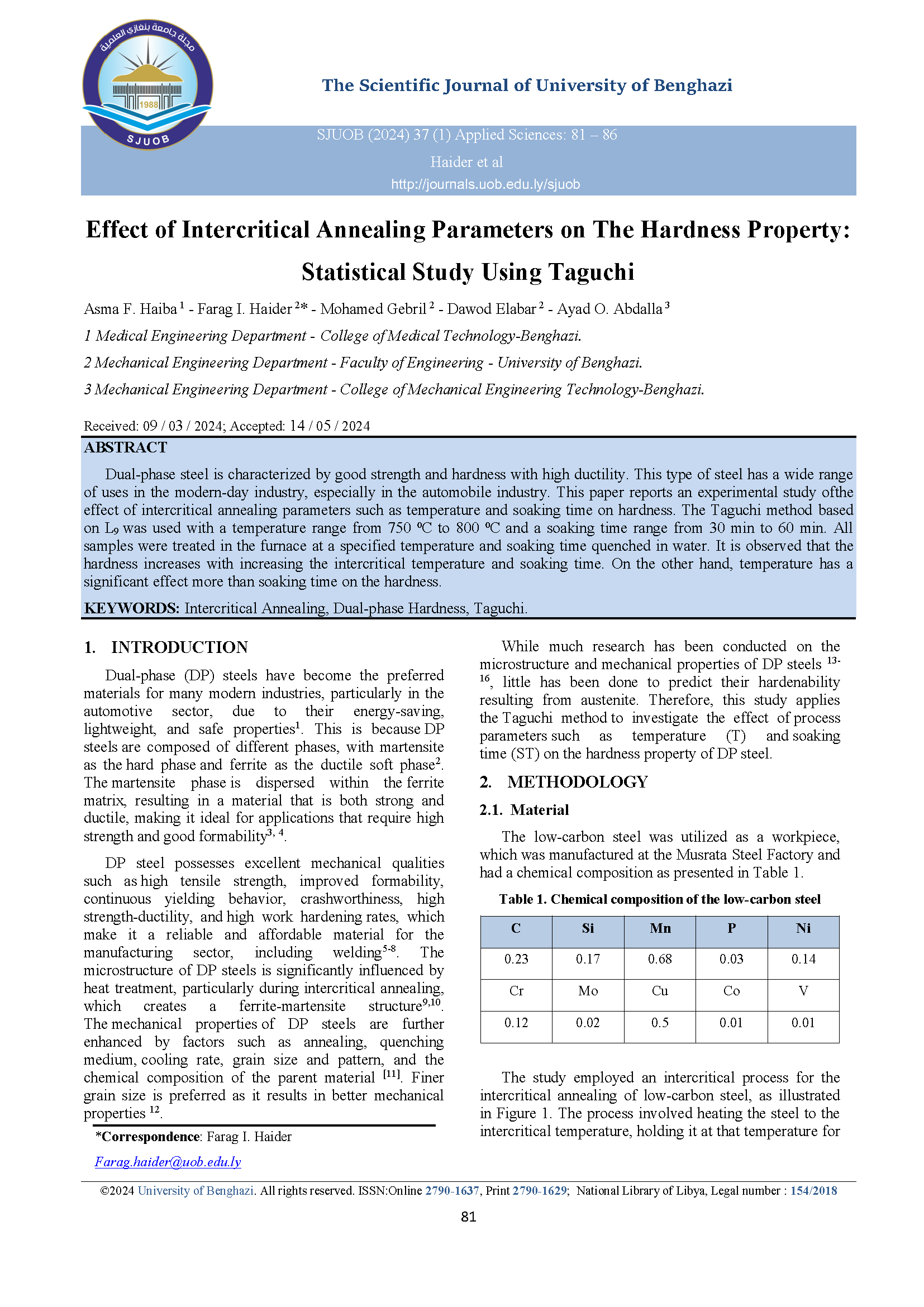Effect of Intercritical Annealing Parameters on The Hardness Property: Statistical Study Using Taguchi
DOI:
https://doi.org/10.37376/sjuob.v37i1.5942Keywords:
Intercritical Annealing, Dual-phase Hardness, TaguchiAbstract
Dual-phase steel is characterized by good strength and hardness with high ductility. This type of steel has a wide range of uses in the modern-day industry, especially in the automobile industry. This paper reports an experimental study ofthe effect of intercritical annealing parameters such as temperature and soaking time on hardness. The Taguchi method based on L9 was used with a temperature range from 750 ⁰C to 800 ⁰C and a soaking time range from 30 min to 60 min. All samples were treated in the furnace at a specified temperature and soaking time quenched in water. It is observed that the hardness increases with increasing the intercritical temperature and soaking time. On the other hand, temperature has a significant effect more than soaking time on the hardness.
Downloads

Downloads
Published
How to Cite
Issue
Section
License
Copyright (c) 2024 The Scientific Journal of University of Benghazi

This work is licensed under a Creative Commons Attribution-NonCommercial-NoDerivatives 4.0 International License.


















